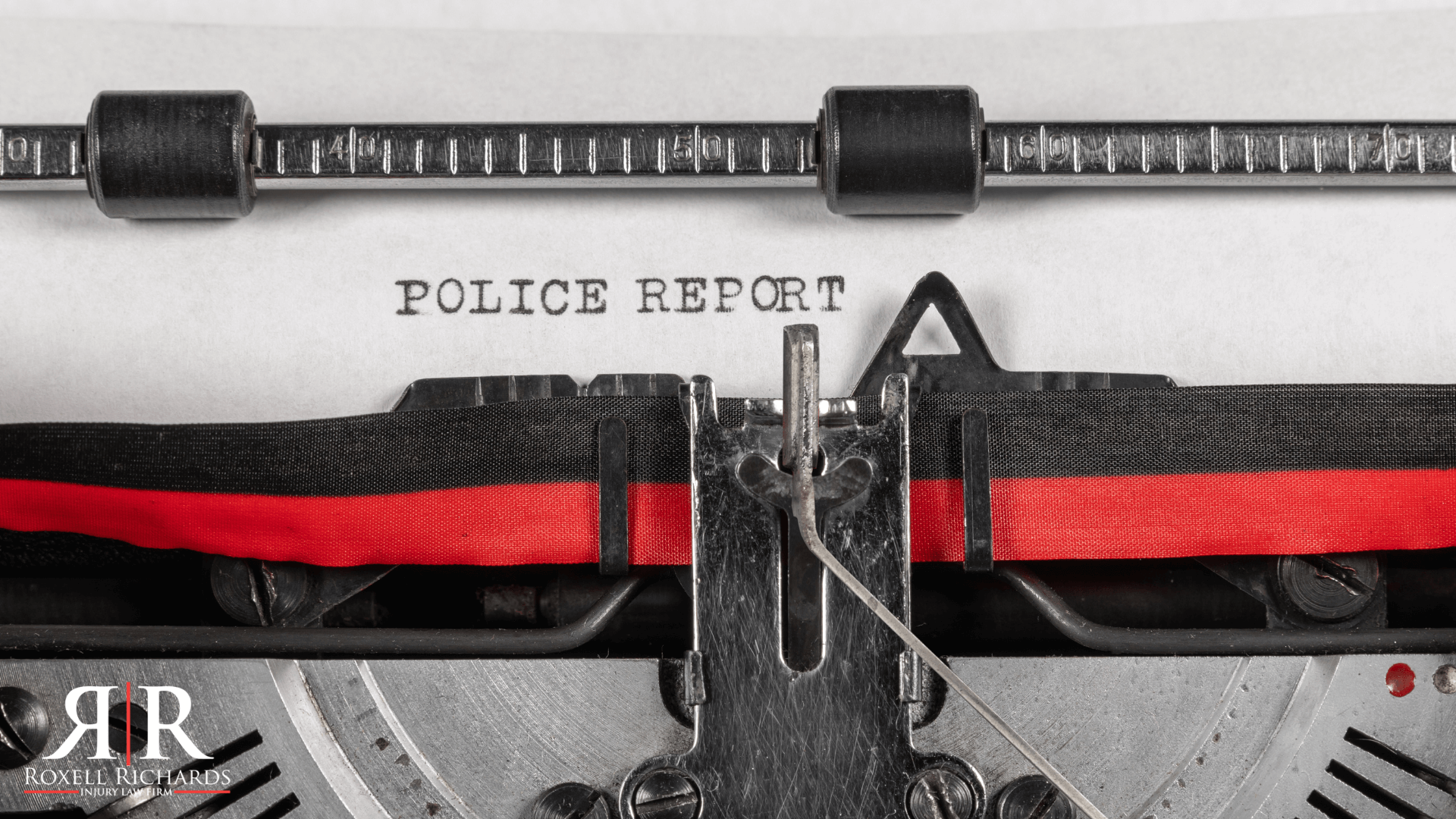Texas Car Accident Police Report: The Truth Unveiled
Car accidents can be frightening and overwhelming experiences. In Texas, it’s important to understand the role of a police report and its significance in the aftermath of a car accident.
And this blog post will address common questions regarding car accident police reports in Texas. Furthermore, explaining their requirements, process, and legal implications.
Texas Requires A Police Report for A Car Accident
In Texas, not all car crashes in Houston, Texas require a police report. However, there are certain circumstances where a police report is mandatory. According to the Texas Transportation Code, you must report an accident to law enforcement if it involves:
- Injury: If anyone in the accident suffers injuries or requires medical attention, it is necessary to report the accident to the police.
- Death: If the accident results in the death of any individual, notify law enforcement immediately.
- Property Damage: If the property damage estimate exceeds $1,000 or if there is damage to a vehicle rendering it inoperable, it is required to report the accident to the police.
So, it is important to note that even if a police report is not required, obtaining one is often beneficial. Since it provides an official record of the incident, which can be useful for insurance claims and legal purposes.
Filing a police report for an accident in Texas
To file a police report for an accident in Texas, follow these steps:
Ensure Safety
First, ensure you and others in the accident are safe. And then call an ambulance if someone is hurt and immediate treatment is necessary.
Contact the Police
Call the local law enforcement agency if the accident falls under earlier criteria (involving injuries, death, or significant property damage). And then dial the non-emergency number for the police department. It should be in the jurisdiction where the accident took place. If it is an emergency or there are severe injuries, dial 911.
Provide Essential Information
When speaking with the police, provide accurate information with full details about the accident. Prepare to provide:
- Your full name, contact information, and driver’s license number.
- Location and date the accident took place.
- Description of the vehicles in the accident, including license plate numbers, make, and model.
- Description of the damages and injuries, if any.
- Any other relevant information or details about the accident.
Cooperate with Law Enforcement
Follow the instructions given by the police and cooperate fully with their investigation. In fact, answer their questions honestly and provide any additional information they may request.
Obtain a Copy of the Police Report
After filing the report, ask the police officer for information on obtaining a copy. Because they will provide instructions on obtaining a copy, including any fees or procedures. And this report will be essential for insurance claims and potential legal proceedings.
Seek Medical Attention
Even if you don’t have immediate or visible injuries, seeking medical attention for a thorough evaluation is advisable. And some injuries might not be seen immediately but may show up later.
So, keep records of all medical evaluations, treatments, and expenses.
Consult an Attorney
Consider consulting with a personal injury attorney if you suffer from significant injuries. Also, including extensive property damage or difficulties with insurance claims. Because they can provide guidance, protect your rights, and help you navigate legal proceedings if necessary.
And remember, it is crucial to file the police report as soon as possible after the accident. Because prompt reporting ensures accuracy and helps with the timely processing of the report.
Car Accident Reports: Are they public record in Texas?
In Texas, accident reports are known as public information. In fact, a report becomes a public record matter after its submission to the police department. And this is where the men in uniform will process it to their records.
Also, this indicates that the public has access to the material in the report. Even including specifics about the incident, parties involved, witness testimonies, and any citations issued.
Furthermore, the public accessibility of car accident reports serves various purposes. It allows involved parties and insurance companies. Including attorneys with excellent testimonies through case results. And even other interested individuals to obtain necessary information for insurance claims, legal proceedings, or investigative purposes. In fact, accessing and getting police reports online in Houston can help establish liability and determine fault. Furthermore, this will help facilitate the resolution of disputes in relation to the accident.
So, to obtain a copy of a car accident report in Texas, you can typically contact the law enforcement agency who were the first responders to the accident. In fact, you can visit their website to inquire about the process and any fees.
And remember that the availability of online access or specific procedures may vary depending on the police department.
Car Accident Law in Texas
The car accident laws in Texas govern the rights and responsibilities of individuals in motor vehicle accidents. Here are some key aspects of car accident law in Texas:
Fault-Based System
Texas follows a “fault” or “at-fault” system, meaning the person responsible for causing the accident is typically liable for the resulting damages. And the at-fault driver’s insurance company is generally responsible for covering the damages and injuries of the other party.
Comparative Negligence
Texas follows a modification of the comparative negligence rule. Under this rule, a reduction of your compensation is possible if you are found partially at fault for the accident. And if you were found to be more than 50% responsible for the accident, you may not be eligible to recover damages.
Statute of Limitations
The statute sets a time limit for filing a lawsuit after a car accident. In Texas, the general statute of limitations for personal injury claims resulting from a car accident is two years from the accident date.
Minimum Insurance Requirements
Texas law mandates that drivers carry minimum liability insurance coverage. And as of my knowledge cutoff in September 2021, the minimum liability coverage in Texas is $30,000 for bodily injury per person. While it is $60,000 for bodily injury per accident involving multiple people and $25,000 for property damage.
Reporting Accidents
According to earlier statements, reporting accidents involving injuries, death, or significant property damage to law enforcement authorities in Texas is essential.
In Texas, it is a requirement by law to report an accident. Failure to do so can have legal consequences. And the specific penalties and repercussions for not reporting an accident can vary depending on the circumstances and severity of the incident.
Hit-and-Run Penalties
Leaving the scene of an accident, also known as a hit-and-run, is a serious offense in Texas. In fact, penalties for a hit-and-run can include fines, license suspension, and even imprisonment, depending on the severity of the incident.
No-Fault Insurance
Texas is not a no-fault car insurance state. Instead, as previously mentioned, it follows a system where determining liability is according to the degree of fault.
So, it is important to note that car accident laws can be complex, and the specific circumstances of each case may have unique considerations.
And if you have been in a recent car accident, it is advisable to consult with an attorney who specializes in personal injury law. Your attorney will help you understand how the laws apply to your situation and to protect your rights.
Factors someone can sue you in Texas for a Car Accident
Several factors may lead to someone suing you for a car accident in Texas. Here are some common factors that can result in a lawsuit:
Negligence
If the other party can establish that you were negligent and that your negligence was the reason for the accident and resulting damages or injuries, they may file a lawsuit against you. Negligence refers to the failure to exercise reasonable care while driving, such as speeding, running a red light, or failing to yield the right of way.
Reckless Driving
If it can be proven that you were driving recklessly, such as driving under the influence of drugs or alcohol, engaging in street racing, or driving aggressively, the other party may sue you for the accident and resulting harm.
Failure to Follow Traffic Laws
Violation of any traffic laws that directly contributed to the accident, such as failure to stop at a stop sign, driving the wrong way on a one-way street, or illegal passing, you may be held responsible for the accident and face a lawsuit.
Defective Vehicle or Parts
If the accident was from a defect in your vehicle or its parts, the injured party may pursue legal action against you and potentially the manufacturer or distributor of the defective product.
Vicarious Liability
If you were driving as an employee or agent of a company at the time of the accident, the injured party may sue you and your employer under the legal principle of vicarious liability. And this holds the employer accountable for the actions of their employees within the scope of their employment.
Serious Injuries or Damages
If the accident resulted in significant injuries, extensive medical expenses, permanent disability, or substantial property damage, the injured party may file a lawsuit to seek recompense above and above what your insurance will pay.
In Texas, a specific time limit, known as the statute of limitations, is within which a person can sue you for a car accident. And the statute of limitations sets a deadline for initiating legal proceedings. In Texas, the statute of limitations for personal injury claims resulting from a car accident is generally two years from the accident date.
If someone wants to sue you for injuries or damages from a car accident, they typically have two years from the accident date to file a lawsuit.
The statute of limitations may bar failure to file the lawsuit within this timeframe, and the injured party may lose their right to seek legal action.
Also, in Texas, car accidents generally stay on your driving record for a period of three years from the date of the accident.
The Texas Department of Public Safety (DPS) maintains driving records that contain information about your driving history, including any accidents you have been involved in.
Consequences of not reporting an Accident within 24 Hours in Texas
In Texas, it is a general requirement to report an accident to law enforcement authorities within 10 days if it meets certain criteria. However, if you fail to report an accident within 24 hours and it falls under the reporting requirements, it may have legal consequences. Here are some potential outcomes:
Violation of the Law: Failing to report an accident within the designated timeframe may violate Texas law. Texas Transportation Code Section 550.026 states that the operator of a vehicle involved in an accident resulting in injury, death, or property damage exceeding $1,000 must immediately report the accident to the appropriate law enforcement agency or the nearest office of the local police department.
Criminal Penalties: If you fail to report an accident as required by law, you may face criminal penalties. The specific penalties can vary according to the severity of the accident and the circumstances involved. These penalties can include fines, probation, and potentially even imprisonment. And this is particularly in cases where serious injuries or death result from the accident.
Insurance Implications: Failing to report an accident promptly to your insurance company can also affect your insurance coverage. Insurance policies typically have specific requirements for reporting accidents within a certain timeframe. Failure to comply with these requirements may result in a denial of coverage or complications when filing a claim.
It is important to note that the specific consequences for not reporting an accident within 24 hours can vary depending on the circumstances and the discretion of law enforcement and the courts.
It is generally advisable to report accidents promptly, especially if they meet the reporting criteria, to comply with the law, ensure the safety of all parties involved, and protect your legal rights.
The compensation you get from a car accident in Texas
The compensation you can receive from a car accident in Texas can vary widely depending on several factors. It’s important to understand that there is no fixed or predetermined amount for car accident settlements or awards. The specific amount you may receive will depend on factors such as:
Severity of Injuries
Your injuries’ severity and breadth significantly influence the compensation amount. Medical expenses, including hospital bills, rehabilitation costs, and ongoing treatment, will be considered.
Property Damage
The value of the property damage from the accident, such as damage to your vehicle, will be considered in the compensation calculation.
Loss of Income
If missing work or having a temporary or permanent disability affects your earning capacity, you may be entitled to compensation for lost wages or future loss of income.
Pain and Suffering
Awarding compensation may be for physical pain, emotional distress, and psychological trauma resulting from the accident and its aftermath.
Comparative Negligence
The modified comparative negligence rule is used in Texas.
If you are found partially at fault for the accident, the court may reduce your compensation proportionately according to your percentage of fault. You may not be eligible to recover damages if you are found more than 50% responsible.
Insurance Coverage
Your compensation may also be influenced by the insurance coverage available, both yours and the other parties involved in the accident.
Legal Representation
A personal injury attorney with professional experience can help you negotiate with insurance companies. Also, they can help you build a strong case to pursue maximum compensation for your damages.
It’s important to consult with a personal injury attorney with professional qualifications. Because you need someone who can evaluate your case and consider all relevant factors. Moreover, they can estimate the compensation you may be entitled to according to your specific circumstances. They can guide you through the legal process, advocate on your behalf, and help you seek fair compensation for your losses.
Leaving the scene of an accident: What happens if you leave in Texas?
Leaving the scene of an accident, also known as a hit-and-run, is a serious offense in Texas and can result in severe legal consequences. If you leave the scene of an accident without stopping and providing the required information, you may face the following:
Criminal Penalties
Under Texas law, leaving the scene of an accident is a classification as a misdemeanor or a felony, depending on the circumstances. If the accident involves only property damage, it is generally a Class C misdemeanor, considerably. However, if the accident involves injury or death to another person, it may classify as a felony offense, which carries more severe penalties.
Fines and Imprisonment
If convicted, the penalties for leaving the scene of an accident can include fines and imprisonment. The fines for a misdemeanor hit-and-run offense can range from a few hundred to several thousand dollars. Felony hit-and-run offenses can result in significantly higher fines and potential prison sentences.
Driver’s License Suspension
Leaving the scene of an accident in Texas can also lead to the suspension or revocation of your driver’s license. The length of the suspension can vary according to the severity of the offense and any prior convictions.
Civil Liability
Besides criminal penalties, leaving the scene of an accident can have civil consequences. The injured party may pursue a civil lawsuit against you to seek compensation for their injuries and damages. By leaving the scene, you may be seen as acting negligently and could be held liable for causing harm.
It is crucial to remember that if you are in an accident, you are legally obligated to stop your vehicle and exchange information with the other parties involved. And, if necessary, provide reasonable assistance to any individuals with injuries.
It is also a requirement to report the accident to law enforcement authorities promptly.
Obtaining Police Report Online
In many cases, you can obtain a police report online in Texas. And several law enforcement agencies and police departments provide online access to police reports for convenience and efficiency.
In fact, online police reports may be available in some jurisdictions in Texas, but it depends on the law enforcement agency’s policies.
And to find out if you can get a police report online, visit the website of the police department or law enforcement agency handling the accident. Look for a section on police reports or public records for information on accessing reports online.
But in some cases, you may need to provide certain details about the accident, such as the date, location, and parties involved, to locate and retrieve the report. Additionally, a fee may be associated with obtaining a copy of the report, which can typically be paid online.
If you cannot find the police report online or if the specific jurisdiction does not provide online access, you can reach out to the police department directly for guidance on how to obtain a copy. They can provide information on alternative methods, such as in-person requests or mailing a request form.
Online police reports may have limitations and redacting information to protect privacy and ongoing investigations.
We recommend you check the police department’s website for the most accurate information about obtaining a police report online in Texas. Also, you can contact them directly if you need to.
Filing a Police Report Online
To file police reports online, Houston may not be available everywhere. Some police departments offer online reporting, while others require in-person or phone reports.
Check the website of the Houston police department in your area to see if they have a report form available and if online reporting is an option. Provide details like the date, time, location, and description of the incident if online reporting is available.
If not, contact the non-emergency phone number for guidance on filing the report. Remember to call 911 for emergencies.
Contact the police department directly for the most accurate information on reporting options in your area.






